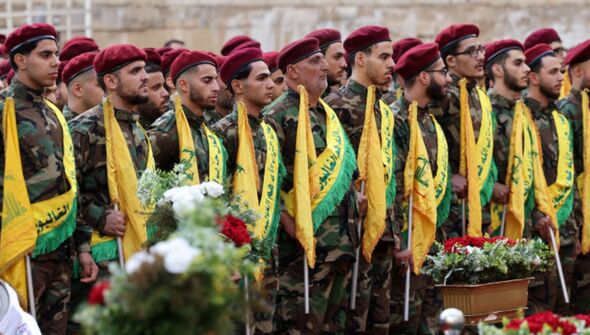Iran’s proxy in south Lebanon, Hezbollah, has been dealt a severe blow. As widely reported across the world’s media, earlier this week their communications devices – pagers and walkie-talkies mainly – mysteriously began to explode, maiming large numbers of their operatives.
No-one has accepted responsibility, but Hezbollah’s arch-enemies the Israelis are the prime suspects. They have the means and wherewithal to carry out this sort of sophisticated attack as they have demonstrated on many occasions previously.
Historically speaking, such “supply chain attacks” are not uncommon. In fact attacking an enemy’s logistics and means of production has been a legitimate act of war as far back as anyone might care to remember. But the ingenuity in this case has taken it to a new level.
The question now is how Hezbollah might respond. I think they’re probably stuffed in the short term because their internal communications are now suspect and many of their fighters have been rendered hors de combat. You can’t fight the enemy if you can’t see them anymore and if you have no fingers left to pull the trigger. Brutal, but true.
Iran, however, will be keen to keep them active and maintain the pressure on Israel. Expect an increase in Iranian support for Hezbollah in terms of weaponry, finance, and training. Tehran is smarting from a series of defeats at the hands of their arch enemies and will be thirsting for revenge.
Israel clearly is, for the time being at least, on the front foot here. Indeed it would not surprise me if the IDF were to cross the border shortly and give Hezbollah another slap while they’re still down. That could well have been the original plan, of course, in setting off the explosions as a preliminary to a general action, but it looks as if they were about to be rumbled and had to act quickly and decisively before the rabbit was out of the hat.
So what will Hezbollah do now? Their leader, seldom seen in public for fear of assassination, made a heavily-trailed speech on Thursday in which he claimed rather unbelievably that the group’s communications networks had survived unscathed, which is demonstrably false.
He put the blame for the sophisticated attacks squarely on Israel, which is much more believable, and tried to put the bravest possible face on what has undoubtedly been one of the darkest moments in Hezbollah’s history.
Nasrallah said the attacks would be met with a response “in a way that they might expect and that they might not expect. I won’t talk about place, time, location, details,” he added. “You will find out when it happens. This reckoning will happen. The details, we won’t reveal now, because we are now in a very sensitive stage of the battle.”
But I suspect this was mainly for domestic consumption, designed to rally his troops and bolster their damaged morale. Everybody knows that Hezbollah has suffered a heavy defeat.
Nonetheless, overnight the tit-for-tat nature of this “almost” war continued. Hezbollah launched a few rockets at northern Israel, a somewhat forlorn attempt to keep up appearances, and the IDF followed up with a series of air strikes which they claim destroyed up to 100 of their enemy’s missile launcher sites.
The truth is that it will take many months, if not years, for Hezbollah to recover. Despite their claims otherwise, their means of communication are now hopelessly compromised and they will be concerned about just how far the Mossad penetration of their organisation has percolated.
Have the Israelis accessed all of their IT and communications systems? Possibly. Have their weapons been secretly booby-trapped and liable to blow up in their faces when they pull the trigger? Perhaps. Have the Israelis put bugs everywhere so that their messages and conversations can be eavesdropped? Who knows.
To be absolutely sure that they are secure all they can do is remove all the equipment they have in hand and start all over again, building from the ground up. That is going to take a lot of time and a lot of money and they’ll be looking to Tehran to finance it.
Whether the IDF will now move into southern Lebanon and clear it of their enemy remains to be seen. But, if they do, they will face a seriously weakened opposition who will be able to put up only token resistance.
Lt Col Stuart Crawford is a political and defence commentator and former army officer. Sign up for his podcasts and newsletters at www.DefenceReview.uk
